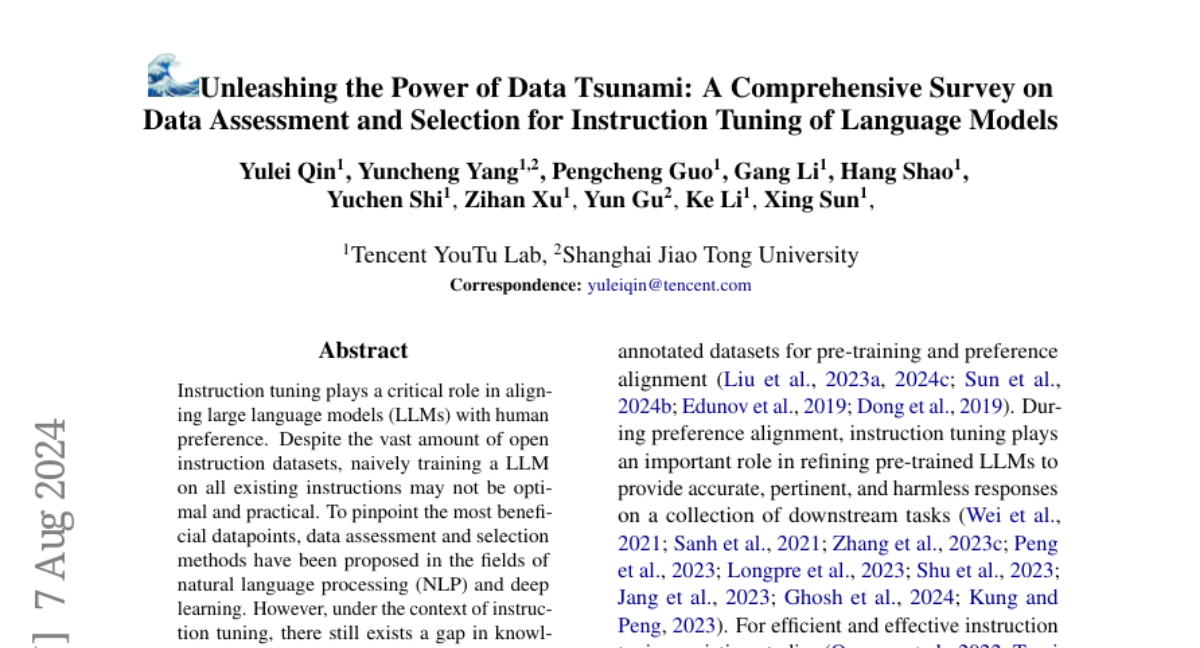Unleashing the Power of Data Tsunami: A Comprehensive Survey on Data Assessment and Selection for Instruction Tuning of Language Models
Yulei Qin, Yuncheng Yang, Pengcheng Guo, Gang Li, Hang Shao, Yuchen Shi, Zihan Xu, Yun Gu, Ke Li, Xing Sun
2024-08-06

Summary
This paper reviews how to choose and evaluate data for instruction tuning of large language models (LLMs), which helps these models better understand and follow human instructions.
What's the problem?
While there are many datasets available for training LLMs, using all of them without careful selection may not produce the best results. There is a lack of knowledge about how to effectively evaluate and select the most useful data for instruction tuning, which is essential for improving model performance.
What's the solution?
The authors provide a comprehensive survey that categorizes different methods for assessing and selecting data into three types: quality-based, diversity-based, and importance-based. They also discuss various techniques used in these categories and compare the effectiveness of the latest methods on standard benchmarks. This helps identify the best ways to improve instruction tuning without overwhelming the models with unnecessary data.
Why it matters?
Understanding how to effectively select and evaluate data for instruction tuning is crucial because it can lead to better-performing LLMs that align more closely with human preferences. This research can help improve AI systems, making them more useful in real-world applications where following instructions accurately is important.
Abstract
Instruction tuning plays a critical role in aligning large language models (LLMs) with human preference. Despite the vast amount of open instruction datasets, naively training a LLM on all existing instructions may not be optimal and practical. To pinpoint the most beneficial datapoints, data assessment and selection methods have been proposed in the fields of natural language processing (NLP) and deep learning. However, under the context of instruction tuning, there still exists a gap in knowledge on what kind of data evaluation metrics can be employed and how they can be integrated into the selection mechanism. To bridge this gap, we present a comprehensive review on existing literature of data assessment and selection especially for instruction tuning of LLMs. We systematically categorize all applicable methods into quality-based, diversity-based, and importance-based ones where a unified, fine-grained taxonomy is structured. For each category, representative methods are elaborated to describe the landscape of relevant research. In addition, comparison between latest methods is conducted on their officially reported results to provide in-depth discussions on their limitations. Finally, we summarize the open challenges and propose the promosing avenues for future studies. All related contents are available at https://github.com/yuleiqin/fantastic-data-engineering.